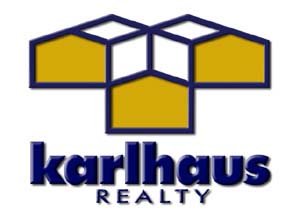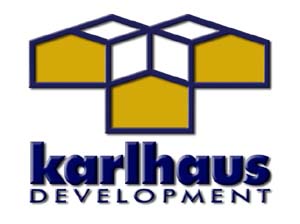The Save our Homes Amendment Property Tax Cap
The Florida Constitution was amended effective January 1, 1995, to limit annual increases in assessed value of property with Homestead Exemption to three percent or the change in the Consumer Price Index, whichever is lower (see CPI history). This amendment is generally known as the "Save our Homes Amendment". No assessment, though, shall exceed current fair market value. This limitation applies only to property assessed value, not property taxes. When a house is sold, the cap and exemption are removed at the end of the calendar year, and taxes are calculated on the full market value, also called the Just/Market Value. The property will fall under the limitations of the Save Our Homes Cap the second year of the new owner's Homestead Exemption. (Therefore, if a property owner applies for and receives Homestead Exemption for 2007, the Assessed Value will be capped in 2008). To determine taxable value, any exemptions are subtracted from the Assessed Value to reach a Taxable Value, which is then multiplied by the yearly Millage Rate set by the taxing authorities to reach the amount of tax due. Because a change in property ownership will effectively "reset" the Capped Value, it is important to be aware when purchasing a new home that is benefiting from the cap, it can be expected that property taxes will increase the next year because the assessed value must be adjusted to equal current market value. The increase due to the removal of the Cap may double or even triple taxes, depending on how long the previous owner had homestead exemption. The table below illustrates this. (For example, if the Millage rate for this fictitious property was 23.000 mills, then the previous owner would have paid $736, whereas one year later the new owner would pay $1,725 - a substantial increase.) How the Cap Works when a Property Sells: *(For this example, the previous owner's Assessed Value has been capped for several years and is therefore significantly lower than the current Just/Market Value.) **(For this example, Property is Capped at 3% , Cap Rate for 2008 - actual cap rate will vary yearly.) If additions or improvements are made to the property, the value of those improvements will be added to the roll regardless of the cap. For example, if a pool is added to a property, the value can increase no more than the cap rate, plus the value of the pool. If the Assessor corrects such items as size, number of bathroom fixtures, installation of heat and/or air conditioning, the value of those corrections will also be added to the roll above the cap. The fine print... The cap does not apply to properties that are not homesteaded or are rented. Multi-family properties may qualify based on percentage of use. For example, if you own a duplex, live in one half and rent the other half to a tenant, only 1/2 of your property value will be capped. The cap remains in effect upon the change of title due to divorce or death of a spouse as long as the remaining owner continues to live on the property as their permanent address. NOTICE On January 29, 2008, Florida citizens voted to pass Amendment 1. One of the provisions of Amendment 1 allows qualified property owners to "port" their Save Our Homes Cap when they move from their homesteaded property to another Florida property. Another provision increased the homestead exemption. For the November 2008 Florida Ballot there is yet another measure that will, if passed, enact an across the board property tax cut of about 25%. In September 1995, Florida's Governor and Cabinet approved a rule directing property appraisers to raise the assessed value of a qualifying homestead property by the maximum of 3% or the annual change in the Consumer Price Index, whichever is less, on all properties assessed at less than full market value whether or not that property's value increased during that calendar year. Will I Lose My Homestead Exemption if I add someone to my deed? Adding names to the ownership of your home normally does not change your $25,000 Homestead Exemption, BUT you may lose all or part of the protection your property receives from the Save Our Homes (SOH) assessment limitation or "cap". The SOH cap keeps the assessed value of your home from increasing more than 3% per year as long as you maintain your Homestead Exemption. A loss of protection from the SOH cap will increase the amount of property taxes you pay. Will I lose my Save Our Homes Cap if I add someone to my deed? Maybe, depending on how you own the property (the "tenancy"), and if the new owner files for Homestead Exemption on your property. "Tenancy" is the term used to describe the way property is owned, the relationship between the owners, and what happens to the property when an owner dies. The most common forms of tenancy are: tenancy by the entireties, joint tenants with right of survivorship, and tenants in common. If two or more people own property with a homestead exemption, the type of tenancy that appears on the deed can have an effect on the "Save Our Homes" provision, and ultimately the amount of taxes that are owed. If the new owner is your spouse,or someone who is legally or naturally dependent on you, he or she must apply for homestead exemption. Your current Save Our Homes cap will not be adjusted. Joint Tenants with Right of Survivorship: If the new owner is a joint tenant with right of survivorship, and he or she DOES NOT apply for Homestead Exemption, your SOH cap WILL NOT be adjusted. If the new owner is a joint tenant with right of survivorship and DOES apply for Homestead Exemption, your SOH cap WILL be adjusted to market value and start anew the following year. In future years, the SOH Cap will protect 100% of the property. One Important Note! If the new owner is living with you and intends to make the property his or her permanent residence, it may make more sense to apply for the new Homestead Exemption now rather than waiting until a later date. Your Homestead Exemption and SOH cap protects only you, and not the new owner. In the future if you no longer reside in this home, the new owner will have to apply at that time, and the property value and taxes will most certainly be much higher than they are now.Tenants in Common If the new owner is a tenant in common and DOES NOT apply for homestead exemption, your SOH cap WILL BE adjusted to protect only your proportionate or "percent" interest in the property. The "percent" interest of any owner who does not have homestead exemption will be assessed at market value each year. If the new owner DOES apply for Homestead Exemption, your SOH cap WILL BE adjusted to market value and start anew the following year. Can I "undo" or cancel a deed that is already recorded? If the wording of your current deed has consequences that you did not intend, you may want to consider a corrective deed. Please consult an attorney, title company or other real estate professional to help you prepare your corrective deed. The Property Appraiser's office cannot advise you, since there are many serious considerations that go beyond how homestead exemption is calculated, including income and estate tax consequences. It is recommended that you never attempt to change your deed without the help of a professional. Are there other ways of transferring my property for estate planning that will not disturb my Homestead Exemption or SOH Cap? Two methods of transferring your property will, in most cases, keep your Homestead Exemption and SOH intact: reserve a Life Estate for yourself or transfer your property to your trust. Please consult your attorney or estate planning professional before attempting either option. If you transfer your property to a trust, your attorney should know that three criteria are required in order for your Homestead Exemption and SOH cap to remain intact: PLEASE CONSULT YOUR ATTORNEY OR ESTATE PLANNING PROFESSIONAL. THIS INFORMATION IS PROVIDED ONLY TO HELP YOU UNDERSTAND HOMESTEAD EXEMPTION AND DOES NOT CONSTITUTE LEGAL ADVICE.Previous Owner's CAP 1st Year of New SOH: 2nd Year of SOH: Just/Value (Increases with Market): $150,000 $160,000 $170,000 Assessed (Capped) Value: $97,000* $160,000 $164,800** Less Exemptions: -$50,000 -$50,000 -$50,000 Taxable Value $47,000 $110,000 $114,800 The Recapture Rule
Save Our Homes Annual Increase
2008 4.1% 3.0% 2007 2.5% 2.5% 2006 3.4% 3.0% 2005 3.3% 3.0% 2004 1.9% 1.9% 2003 2.4% 2.4% 2002 1.6% 1.6% 2001 3.4% 3.0% 2000 2.7% 2.7% 1999 1.6% 1.6% 1998 1.7% 1.7% 1997 3.3% 3.0% 1996 2.5% 2.5% 1995 2.7% 2.7%









 Entrepreneur, former Fortune 500 senior executive, semi-retired at the age of 39 after founding and growing several businesses in High Technology, Management Consulting and Manufacturing.
Entrepreneur, former Fortune 500 senior executive, semi-retired at the age of 39 after founding and growing several businesses in High Technology, Management Consulting and Manufacturing.
Will I lose my Save Our Homes Cap if I remove someone to my deed?
ReplyDelete